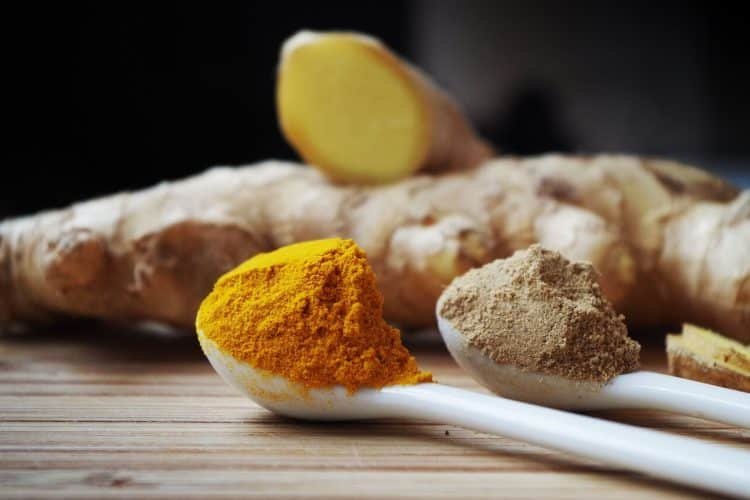Turmeric is considered halal because of its natural origin. However, packaged forms of turmeric can contain additives such as emulsifiers, which can make them haram. It is important to check the ingredients of turmeric packaged and make sure that they are not mixed with any haram additives.
Turmeric is a natural spice collected from the rhizome (also known as creeping rootstalk) of a plant called Curcuma longa, which is considered to be a member of the ginger family. It is widely used in Middle Eastern, Indian, and Southeast Asian cuisine and is a common ingredient in curry powders. The condiment has been used in cooking for centuries in the Muslim world.
Check out this article if you are wondering whether turmeric is halal or haram. We will look at the Islamic view of turmeric and answer some common questions about it.
Is Turmeric Considered Halal?
Yes, turmeric is considered halal by Muslim scholars as long as it does not contain any forbidden ingredients. In other words, if there are no animal derivatives or traces of alcohol in the product, it is permissible to consume.
The problem is that most of the packaged turmeric in stores contains a fat-based emulsifier, polysorbate 60 or polysorbate 80. It is an additive often used on processed food to preserve the shelf life and texture of the product.
Polysorbate 60 is a blend of sorbitol, stearic acid, and ethylene oxide, while Polysorbate 80 has polyethoxylated sorbitan and oleic acid. The stearic acid in polysorbate 60 and the oleic acid in polysorbate 80 are mainly derived from animal sources which can make turmeric haram.
Therefore, it is important to read the labels carefully before buying turmeric powder. Make sure the brand you choose does not contain any of these substances. If you are unsure, just look for one that is certified halal or 100% natural. Note that if the packaging specifically marks that the emulsifiers are derived from natural sources, you can consider it halal.
At the end of the day, it’s best to use natural turmeric powder without any additives. You can even buy whole turmeric root in the form of rhizomes and then grind them into a fine powder at home if possible. This way, you can be sure it is 100% halal and safe to consume.
Is Turmeric Mentioned in the Quran or Hadith?
No, turmeric is not mentioned in the Quran or Hadith. However, it’s a part of the ginger family which is mentioned in the Quran in Surah Insan (verse: 17). Both ginger and turmeric are filled with many health benefits and are safe to consume. Especially they are a great source of antioxidants and anti-inflammatory agents.
Conclusion
So, to sum up, turmeric is generally considered to be halal as long as it does not contain any forbidden ingredients. To stay safe, it is best to read the labels carefully and look for certified halal or 100% natural options. Also, it’s a good idea to buy whole turmeric root and grind it into powder at home.
This way, you can be sure that the spice is 100% halal. Happy cooking!








[…] Also Read: Is Turmeric Halal or Haram? […]